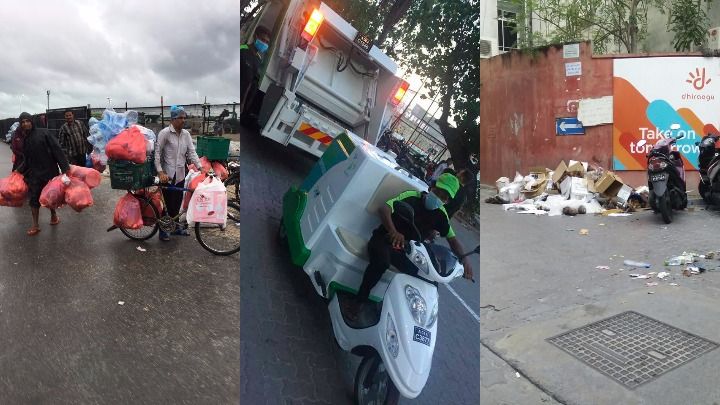Garbage piles up as state company takes over collection services
Less than half of the approximately 27,000 households in Malé were registered for the WAMCO service when expatriate workers stopped collecting garbage after a ban on carrying garbage bags on bicycles came into force on August 1.

03 Aug 2017, 9:00 AM
Garbage has been piling up on the streets of Malé after the state-owned Waste Management Corporation took over collection services in the congested capital city.
Less than half of the approximately 27,000 households in Malé were registered for the WAMCO service when expatriate workers stopped collecting garbage as a ban on carrying garbage bags on bicycles came into force on August 1.
Briefing the press Thursday morning amid growing public concern over the creeping garbage crisis, Environment Minister Thoriq Ibrahim said only 7,000 households had applied by the end of July despite a registration drive, public awareness campaigns, and a two-month extension.
“This is a new effort in Maldivian history to systematically collect garbage from homes, so this is a huge and challenging undertaking,” he said.
Become a member
Get full access to our archive and personalise your experience.
Already a member?
Discussion
No comments yet. Be the first to share your thoughts!
No comments yet. Be the first to join the conversation!
Join the Conversation
Sign in to share your thoughts under an alias and take part in the discussion. Independent journalism thrives on open, respectful debate — your voice matters.




